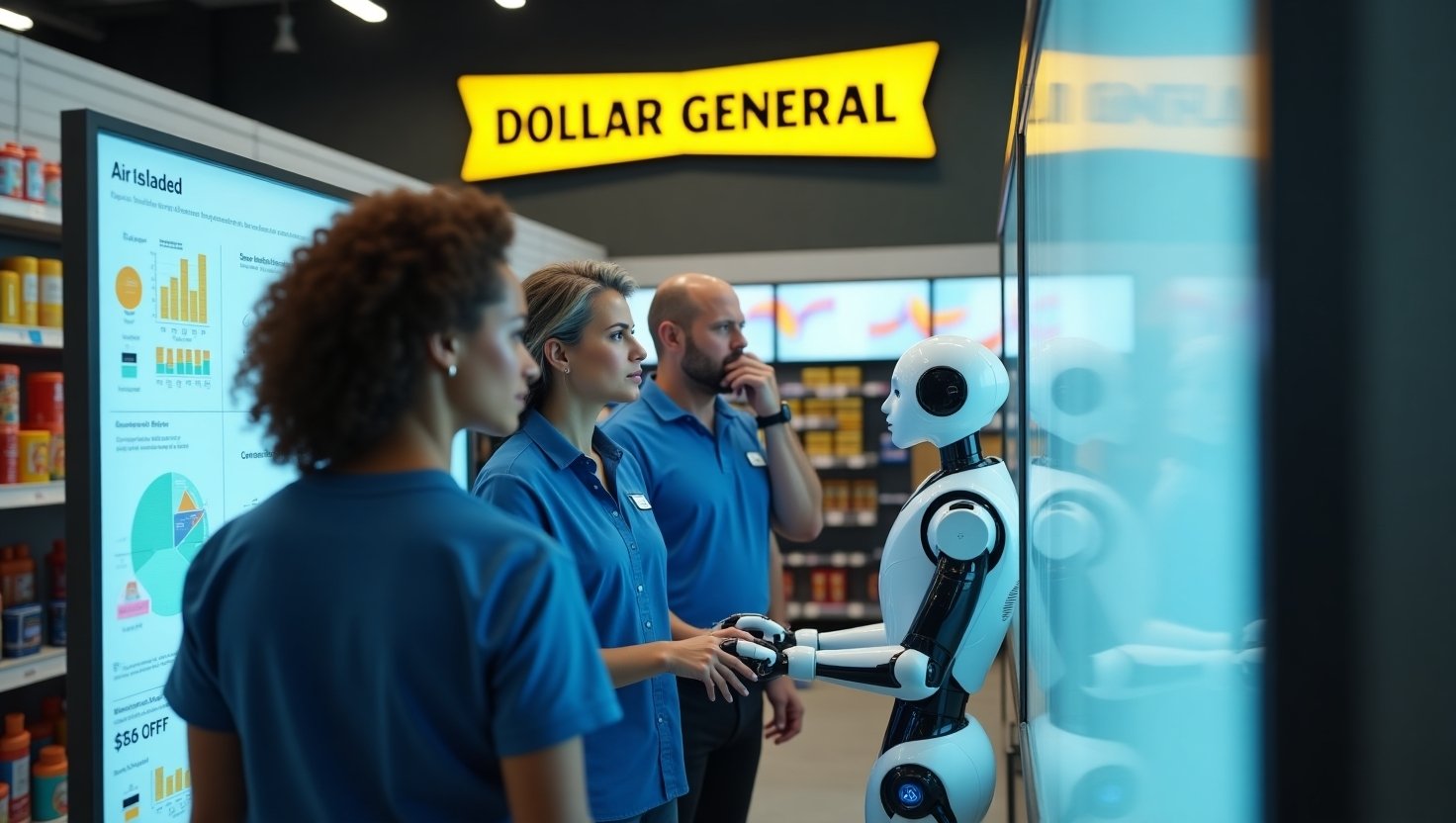AI in Retail: Transforming Dollar General’s Business Strategy
In the rapidly evolving retail landscape, AI in retail is becoming a game-changer for many companies seeking to enhance operational efficiency and improve customer experiences. Companies like Dollar General are at the forefront, implementing advanced technology strategies to stay competitive. Under the strategic guidance of Travis Nixon, Dollar General is making notable strides in AI integration to transform its operations.
Dollar General’s Strategic AI Implementation
Dollar General’s appointment of Travis Nixon as the senior vice president of artificial intelligence optimization marks a crucial step in the retailer’s broader AI strategy. Nixon’s role is centered on integrating artificial intelligence into Dollar General’s supply chain, store operations, and merchandising strategies. His appointment is a testament to the company’s commitment to digital transformation and operational excellence (source: Retail Dive).
Key Areas of AI Integration
1. Supply Chain Optimization: AI is being leveraged to enhance supply chain efficiency by predicting demand more accurately, managing inventory, and optimizing logistics processes.
2. Store Operations: AI tools aid in streamlining store operations, from scheduling staff based on predicted foot traffic to optimizing checkout lines, thereby enhancing the customer experience.
3. Merchandising Strategies: Personalized promotions and targeted marketing campaigns are enabled through AI analytics, allowing Dollar General to tailor offerings to consumer preferences more effectively.
The company’s second-quarter results, showing a 5.1% increase in net sales and a 2.8% increase in same-store sales, reinforce the positive impact of their AI-driven initiatives (source: Retail Dive).
The Broader Context: AI in Discount Retail
The adoption of AI in retail, particularly in discount retail segments like those occupied by Dollar General and Dollar Tree, is not just about technology integration but represents a fundamental shift in business models. By utilizing AI, these retailers are increasingly able to offer competitive prices while enhancing customer satisfaction through personalization and improved service delivery.
Consider the example of AI-powered recommendations on e-commerce platforms like Amazon. These technologies allow personalization at a scale previously unattainable, similarly empowering retail giants to streamline their operations while catering to individual customer preferences more effectively.
Future Implications and Forecasts
Looking ahead, the integration of AI in retail is poised to further disrupt and redefine the sector. With technologies such as machine learning and predictive analytics becoming more sophisticated, retailers can expect to see improvements in:
– Customer Experience: Enhanced data analytics will allow for hyper-personalized customer engagement strategies to emerge.
– Operational Efficiency: AI will increasingly enable retailers to reduce costs and streamline operations, supporting the sustainability of business models focused on discount retail.
– Sales Growth: By refining their ability to forecast demand and optimize inventory, retailers like Dollar General could potentially surpass growth expectations and improve profitability.
As businesses like Dollar General continue to expand their AI initiatives, the retail industry is likely to see a notable shift towards greater innovation and efficiency. These developments signal a promising future where AI-driven strategies are not just enhancements but essential components of successful retail business models.
In conclusion, the infusion of AI in retail, particularly within the discount segments, is proving to be a catalyst for dynamic change. Travis Nixon’s leadership at Dollar General exemplifies how strategic focus on AI doesn’t just optimize operations—it fundamentally transforms retail businesses, setting a powerful precedent for the industry as a whole.










